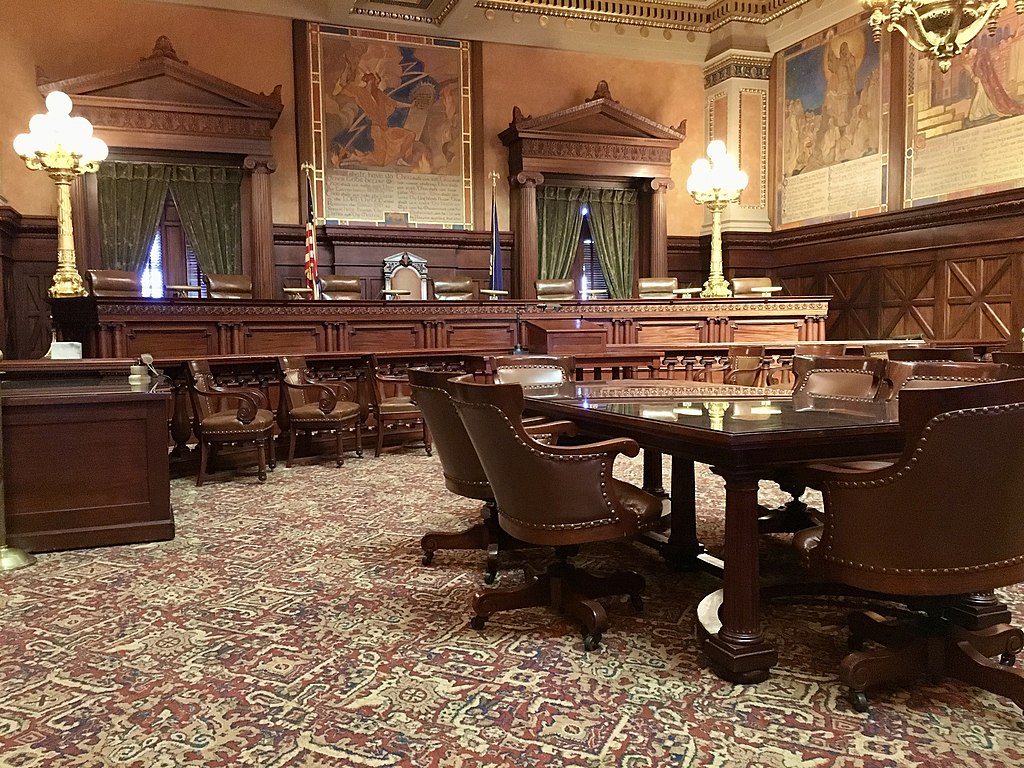The Pennsylvania Supreme Court has once again ruled in favor of the Republican National Committee (RNC), upholding the decision that undated mail-in ballots cannot be counted. This ruling, delivered amid heated debates over voting procedures, has reignited concerns over election integrity and voter disenfranchisement in the critical battleground state.
The ruling reinforces a 2022 decision that sparked nationwide controversy. At its core, the case hinges on whether mail-in ballots missing handwritten dates on their return envelopes should be considered valid. The court's majority opinion stated that strict adherence to election law is necessary to ensure the integrity and uniformity of the voting process. This decision aligns with the RNC's argument that counting undated ballots violates Pennsylvania’s election code.
Key Impact on Pennsylvania Voters
Election officials estimate that thousands of mail-in ballots could be affected by the ruling, raising concerns among voting rights advocates about potential disenfranchisement. Opponents argue that the date requirement is an unnecessary technicality that does not serve to verify a voter's eligibility. However, proponents of the decision emphasize that consistent enforcement of election laws is critical to maintaining public trust in the electoral process.
In Pennsylvania, mail-in voting has become increasingly popular since the state expanded no-excuse absentee voting in 2019. The debate over undated ballots emerged as a flashpoint during the 2020 presidential election and has remained contentious in subsequent cycles.
Reactions From Both Sides
The RNC has celebrated the ruling as a victory for election integrity. In a statement, RNC Chairwoman Ronna McDaniel emphasized the importance of ensuring that election laws are followed uniformly across the state. “This decision safeguards the principle that every legal vote must be counted, and only legal votes,” she said.
Meanwhile, Democratic officials and voting rights groups have sharply criticized the decision. Pennsylvania Attorney General Michelle Henry called it a “blow to voters who follow the spirit of the law but may make minor mistakes.” Advocacy groups like the ACLU argue that the date requirement disproportionately affects elderly, disabled, and minority voters who rely on mail-in voting.
Political Implications
The decision could have significant implications for upcoming elections in Pennsylvania, a state that has consistently played a decisive role in national politics. With razor-thin margins often determining election outcomes, every vote matters. The ruling may also embolden similar legal challenges in other battleground states, where Republicans are pushing for stricter enforcement of mail-in voting rules.
Critics argue that the focus on technicalities like undated ballots diverts attention from broader issues of voter access and election security. However, supporters maintain that enforcing election laws uniformly is essential to avoid potential fraud or administrative inconsistencies.
What’s Next?
The Pennsylvania Department of State has urged voters to double-check their ballots to ensure they comply with all requirements. The decision is expected to add urgency to public education campaigns about proper voting procedures ahead of the next election cycle.
As both parties prepare for a high-stakes 2024 election season, the debate over undated ballots is likely to remain a contentious issue in Pennsylvania and beyond. With the Supreme Court’s decision cementing the RNC’s stance, the focus now shifts to voter outreach and turnout efforts in this pivotal swing state.



 Trump Orders Federal Agencies to Halt Use of Anthropic AI Technology
Trump Orders Federal Agencies to Halt Use of Anthropic AI Technology  ICE Hiring Surge Raises Vetting Concerns Amid Rapid Expansion
ICE Hiring Surge Raises Vetting Concerns Amid Rapid Expansion  NYC Mayor Zohran Mamdani Meets President Trump to Tackle Housing Crisis and ICE Detentions
NYC Mayor Zohran Mamdani Meets President Trump to Tackle Housing Crisis and ICE Detentions  Trump Floats Ted Cruz for Future U.S. Supreme Court Nomination
Trump Floats Ted Cruz for Future U.S. Supreme Court Nomination  Mark Zuckerberg Testifies in Youth Social Media Addiction Trial Over Instagram Policies
Mark Zuckerberg Testifies in Youth Social Media Addiction Trial Over Instagram Policies  Macron Urges Emergency UN Security Council Meeting as US-Israel Strikes on Iran Escalate Middle East Tensions
Macron Urges Emergency UN Security Council Meeting as US-Israel Strikes on Iran Escalate Middle East Tensions  Pakistan-Afghanistan Tensions Escalate as Taliban Offer Talks After Airstrikes
Pakistan-Afghanistan Tensions Escalate as Taliban Offer Talks After Airstrikes  Panama Cancels CK Hutchison Port Contracts, Grants Temporary Control to Maersk and MSC
Panama Cancels CK Hutchison Port Contracts, Grants Temporary Control to Maersk and MSC  Democrats Pledge Major Spending on Virginia Redistricting Ahead of Midterm Elections
Democrats Pledge Major Spending on Virginia Redistricting Ahead of Midterm Elections  JPMorgan Closes Trump Accounts as $5 Billion Lawsuit Moves to New York
JPMorgan Closes Trump Accounts as $5 Billion Lawsuit Moves to New York  Supreme Court Reviews Trump Administration Policies on Tariffs, Immigration, and Federal Power
Supreme Court Reviews Trump Administration Policies on Tariffs, Immigration, and Federal Power  Instagram CEO Defends Platform in Youth Mental Health Lawsuit Over Social Media Addiction Claims
Instagram CEO Defends Platform in Youth Mental Health Lawsuit Over Social Media Addiction Claims  Dominican Republic Unveils Massive Rare Earth Deposits to Boost High-Tech and Energy Sectors
Dominican Republic Unveils Massive Rare Earth Deposits to Boost High-Tech and Energy Sectors  California Seeks Court Order to Halt Amazon’s Alleged Price Inflation Practices
California Seeks Court Order to Halt Amazon’s Alleged Price Inflation Practices  Australian PM Calls Alleged Western Australia Terror Plot “Deeply Shocking” After Arrest
Australian PM Calls Alleged Western Australia Terror Plot “Deeply Shocking” After Arrest  Federal Judge Orders Trump Administration to Facilitate Return of Deported Honduran Student
Federal Judge Orders Trump Administration to Facilitate Return of Deported Honduran Student  Trump Administration Sues Harvard Over Alleged Race-Based Admissions Practices
Trump Administration Sues Harvard Over Alleged Race-Based Admissions Practices 































